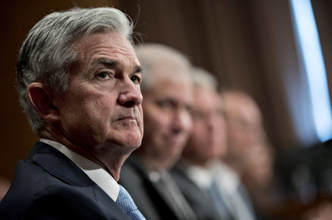
During the dark days leading up to the crash of 2008, the Federal Reserve dropped interest rates from a relatively normal 4% (January, 2008) to nearly zero by the end of that same year. The Federal Reserve (FED) was responding to an urgent economic crisis and attempting to spur consumer, business, and governmental investment and spending. With historic US interest rates averaging between 4%-7%, the FED always had an important tool at its disposal: the ability to drop interest rates to encourage US spending. For an unprecedented seven years after December, 2008, however, the FED kept interest rates near zero. They considered the economy just too fragile to begin increasing interest rates. But few industrialized economies have ever done well in the long-run with interest rates so low for so long. The FED desperately wanted to return to “normal” interest rate levels again so that one day in the future, when times became tough again, it could be in a position to lower rates to spur US spending. So, in the beginning of 2016, FED Chair Janet Yellen and her board decided to slowly begin raising interest rates, a quarter-percent at a time, with the goal of reaching 2% by the end of 2019. “Slow, steady, and controlled increases” was the plan. By the end of her term, in February, 2018, the FED had managed to increase interest rates to about 1.5%. Still, very low by historic standards.
On his first day as the new FED Chair, Jerome Powell was put to the test with the stock market spiraling lower in one of the most violent sell-offs in recent times. It was clear he would have little or no honeymoon period in his new role. The “flash crash” we saw on February 5 is partially blamed on investors being nervous about higher interest rates and inflation moving above the FED’s 2 percent target.
So the world waits to see how Jerome Powell will proceed. He has inherited an economy on a roll, a booming stock market, and unemployment at a 17-year low. Yellen and other FED officials had hoped to remain on a course of gradual rate hikes. They worried that if inflation started to accelerate, they may be forced to apply the brakes more forcefully by raising interest rates more quickly. Some FED officials are not convinced that inflation is on the verge of picking up steam and want Powell to curtail rate increases. But many expect Powell to follow Yellen’s cautious approach to interest rates. March 20-21, 2018 will be the next opportunity for another interest rate increase. It will be Powell’s first opportunity to show the world whether the FED feels the economy has weakened or is still strong and healthy, able to withstand more regular small rate hikes. We still have a long way to go to get to a “normal” US interest rate, hopefully Powell can get us there.
You can see more information by clicking here.

 RSS Feed
RSS Feed